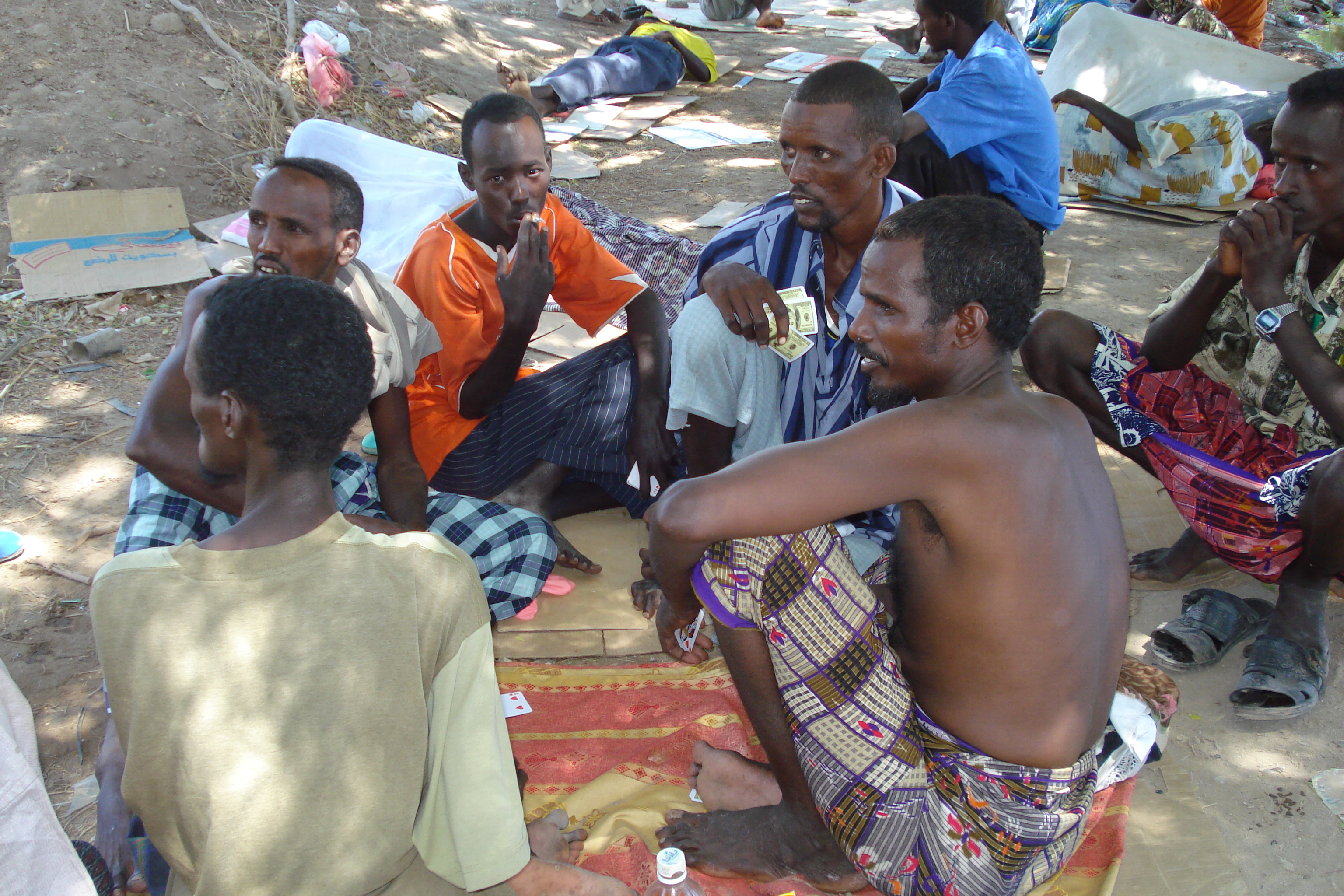A health charity in southern Yemen has said the increasing influx of African refugees is putting pressure on the services it is trying to provide.
The Charitable Society for Social Welfare (CSSW), a local non-governmental organisation, runs two health facilities in the south - one at Kharaz refugee camp in Lahj Governorate, and the other in Aden, which is home to over 15,000 African (mainly Somali) refugees.
Nidhal Ba-Hwaireth, CSSW secretary-general, told IRIN the continuous influx of African refugees in the south was worrying: "Since the beginning of 2008, the refugees have been putting pressure on the medical services we offer. In Kharaz, facilities at the clinic are not sufficient. There are only three doctors, a simple laboratory and a room for maternity services," he said.
Ba-Hwaireth said the Kharaz health centre used to receive 3,000 refugees a month, but that number had now increased to 6,000.
Agreement with UNHCR
The CSSW has an agreement with the UN Refugee Agency (UNHCR) in Yemen to provide medical services to refugees in Kharaz and al-Basatin (Aden area).
CSSW signed an agreement with the UNHCR on 11 March according to which UNHCR would give CSSW 74 million riyals (US$370,000) for its 2008 operations, a 30 percent increase, Ba-Hwaireth told IRIN.
"We had asked the UNHCR to increase the budget by 60 percent due to the continuous increase in the numbers of refugees," he said, adding that the annual budget used to be 54 million riyals ($270,000).
However, despite the budget increase, Ba-Hwaireth said there were challenges ahead: "Between 200 and 300 African refugees arrive each week at the camp in the south… “We have to open medical files for them after giving them medical tests. Some of them were injured by smugglers," he said.
CSSW dispenses medicines for free to the refugees, including those with chronic diseases like diabetes, hypertension or heart problems. Difficult cases are referred to large hospitals in Lahj and Aden. Common diseases among refugees are tuberculosis, malaria, diarrhoea and malnutrition.
More arrivals
Meanwhile, the UNHCR said on 4 March that 8,713 Africans had arrived in southern Yemen on 182 smuggling boats in the first two months of 2008. At least 113 had died at sea and another 214 had gone missing. This is a big increase on the first two months of 2007 when 2,946 Africans arrived.
“The increase in arrivals this year is partly due to the use of new smuggling routes. By the end of 2007 the smugglers had started taking people - mostly Somalis - across the Red Sea from Djibouti. In 2007 an estimated 700 Somalis had taken the Djibouti route," the UN agency said.
maj/ar/cb
This article was produced by IRIN News while it was part of the United Nations Office for the Coordination of Humanitarian Affairs. Please send queries on copyright or liability to the UN. For more information: https://shop.un.org/rights-permissions





